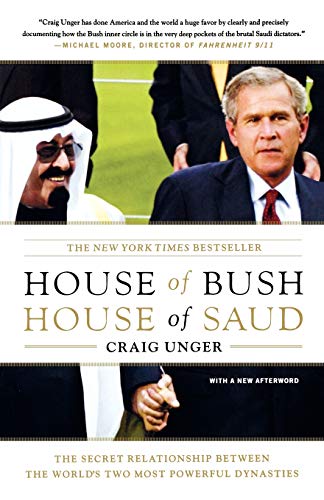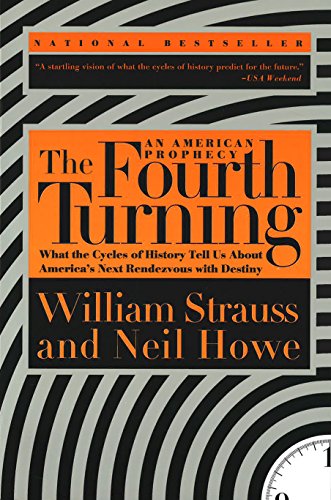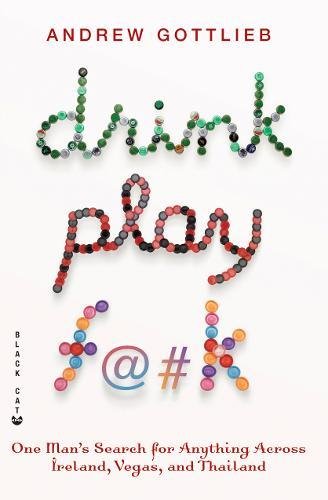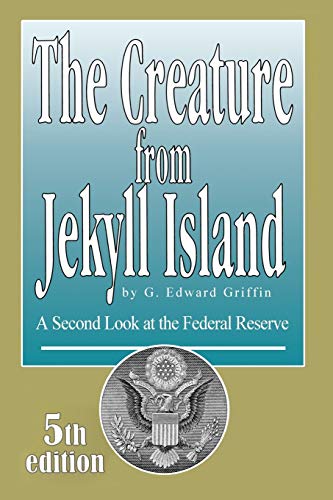(Part 3) Top products from r/WhitePeopleTwitter
We found 20 product mentions on r/WhitePeopleTwitter. We ranked the 154 resulting products by number of redditors who mentioned them. Here are the products ranked 41-60. You can also go back to the previous section.
41. The Conquest of Bread (Dover Books on History, Political and Social Science)
Sentiment score: 1
Number of reviews: 1
 Show Reddit reviews
Show Reddit reviews42. Allen Carr's Easy Way To Stop Smoking
Sentiment score: 1
Number of reviews: 1
The Easyway to Stop Smoking
 Show Reddit reviews
Show Reddit reviews43. The Origin of Consciousness in the Breakdown of the Bicameral Mind
Sentiment score: 1
Number of reviews: 1
Mariner Books
 Show Reddit reviews
Show Reddit reviews45. On Food and Cooking: The Science and Lore of the Kitchen
Sentiment score: 1
Number of reviews: 1
Scribner Book Company
 Show Reddit reviews
Show Reddit reviews46. The Myth of the Rational Voter: Why Democracies Choose Bad Policies - New Edition
Sentiment score: 1
Number of reviews: 1
Princeton University Press
 Show Reddit reviews
Show Reddit reviews47. Days of Rage: America's Radical Underground, the FBI, and the Forgotten Age of Revolutionary Violence
Sentiment score: 1
Number of reviews: 1
Penguin Group USA
 Show Reddit reviews
Show Reddit reviews48. Joy of Cooking: Joy of Cooking
Sentiment score: 0
Number of reviews: 1
Joy of Cooking 75th Anniversary Edition
 Show Reddit reviews
Show Reddit reviews49. House of Bush, House of Saud: The Secret Relationship Between the World's Two Most Powerful Dynasties
Sentiment score: 0
Number of reviews: 1
 Show Reddit reviews
Show Reddit reviews50. Egyptology: Search for the Tomb of Osiris
Sentiment score: 0
Number of reviews: 1
Candlewick Press MA
 Show Reddit reviews
Show Reddit reviews51. The Fourth Turning: An American Prophecy - What the Cycles of History Tell Us About America's Next Rendezvous with Destiny
Sentiment score: -1
Number of reviews: 1
The Fourth Turning
 Show Reddit reviews
Show Reddit reviews52. Drink, Play, F@#k: One Man's Search for Anything Across Ireland, Las Vegas, and Thailand
Sentiment score: 0
Number of reviews: 1
 Show Reddit reviews
Show Reddit reviews53. Boom Town: The Fantastical Saga of Oklahoma City, Its Chaotic Founding... Its Purloined Basketball Team, and the Dream of Becoming a World-class Metropolis
Sentiment score: 1
Number of reviews: 1
 Show Reddit reviews
Show Reddit reviews54. We Can Remember It for You Wholesale (The Collected Stories of Philip K. Dick, Vol. 2)
Sentiment score: 0
Number of reviews: 1
Used Book in Good Condition
 Show Reddit reviews
Show Reddit reviews55. Genius Belabored: Childbed Fever and the Tragic Life of Ignaz Semmelweis
Sentiment score: 1
Number of reviews: 1
 Show Reddit reviews
Show Reddit reviews56. Space relations: A slightly gothic interplanetary tale
Sentiment score: -1
Number of reviews: 1
Used Book in Good Condition
 Show Reddit reviews
Show Reddit reviews57. The Creature from Jekyll Island: A Second Look at the Federal Reserve
Sentiment score: 1
Number of reviews: 1
 Show Reddit reviews
Show Reddit reviews



> Is your current assessment seriously that “people always vote for the most reasonable and prepared candidate but the parties just won’t put them out?”
Nope, I pretty much agree 100% with what you said. I would agree with the notion that the parties won't put out their "best" candidates, but it's not like I would expect the populace to vote for a candidate based on his/her merit anyway.
You might like the book the Myth of the Rational Voter.
Anarchists like free things and the contents have entered the creative commons so you can read it for free online/get it on some ereader.
But if you really like your bookcase I wont judge.
Why, you're more than welcome to point me in the "right" direction, since you're arguably feeling quite certain of yourself. Do be careful to provide reliable sources, though! :)
Incidentally, have you read "Days of Rage" by Bryan Burrough? It certainly doesn't reveal a particularly plesant modern history of the american left, to be sure.
For any one who likes West World and dense philosophy texts -- Jaynes wrote an interesting theory on how humans "evolved" the inner monologue: http://www.julianjaynes.org/julian-jaynes-theory-overview.php His book is great, but not for the faint of heart.
Nope, there's not. The money you have in your wallet is someone else's IOU. If all debts were paid back currency would cease to exist.
It's a complicated concept, but basically the banks are allowed to create money any time they issue a loan. The idea is summed up well by Robert Hemphill, a former credit manager of the Federal Reserve.
>If all the bank loans were paid, no one could have a bank deposit, and there would not be a dollar of coin or currency in circulation. This is a staggering thought. We are completely dependent on the commercial banks. Someone has to borrow every dollar we have in circulation, cash, or credit. If the banks create ample synthetic money we are prosperous; if not, we starve. We are absolutely without a permanent money system. When one gets a complete grasp of the picture, the tragic absurdity of our hopeless situation is almost incredible — but there it is.3
You can read more about this in The Creature from Jekyll Island by Edward Griffin
FFS... https://www.ncbi.nlm.nih.gov/books/NBK144018/ He's referred to by the WHO Guidelines. What else do you need to see to determine you've lived uninformed?
Would you like a religious source? http://www.newadvent.org/cathen/13712a.htm
Perhaps a nonfiction book on the topic? https://www.amazon.com/Doctors-Plague-Childbed-Semmelweis-Discoveries/dp/039332625X/
Or two https://www.amazon.com/Semmelweis-His-Life-Doctrine-Medicine/dp/0266089453
Or three https://www.amazon.com/Genius-Belabored-Childbed-Tragic-Semmelweis/dp/0817319298
And a heartfelt thanks https://medium.com/@WaterAidUK/thank-you-dr-semmelweis-f9249fef60b
In Sam Anderson's terrific book Boomtown , he discusses how Oklahoma City's best-known weatherman could predict if a day would have a tornado, even before any of the factors showed up on radar or satellite.
Every morning he would walk outside and sniff the air; if it smelled like fish, or unusually salty, he would know that warm air from the Gulf of Mexico was heading northbound and was likely to result in a tornado.
https://www.amazon.com/Trance-Formation-America-Cathy-OBrien/dp/0966016548
Good book, can find free pdf online. It’s basically about high level officials controlling kids with mk ultra.
If this kind of stuff really interests you, you should read On Food And Cooking by Harold McGee. Amazing book about the history and scientific principals that drive modern cooking.
Save Vietnam’s Wildlife
And to support the 4 species of African Pangolin: https://www.awf.org/wildlife-conservation/pangolin
You can “adopt” a Pangolin with the WWF
Additionally:
Pangolin conservation center in Vietnam
(Or you can buy the children’s book, the Roly Poly Pangolin , that donates it’s proceeds here)
For conservation information, and a good place to donate for education and conservation
http://savepangolins.org/conservation/
Wildlife Conservation Society’s pangolin page
https://secure.wcs.org/donate/help-save-pangolins
Wildlife trafficking monitoring network
As always, everyone should check out everything they donate to on charity watch
I smoked for 20+ years. Tried everything. Quit and started back countless times. This actually changed my thinking and helped me get free.
https://www.amazon.com/dp/0615482155/ref=cm_sw_r_sms_c_api_i_PpVVCb0AWCP8N
Everybody just do yourselves a favor, stop googling recipes, and buy a decent cookbook
Been done
Here's a sneak peek of /r/nothingeverhappened using the top posts of all time!
#1: This self post on r/nothingeverhappened never happened
#2: Menjual Daging Ayam ? PT. Karya Pangan Sejahtera | 0 comments
#3: Nothing Ever Happened: David Godman | 0 comments
----
^^I'm ^^a ^^bot, ^^beep ^^boop ^^| ^^Downvote ^^to ^^remove ^^| ^^Contact ^^me ^^| ^^Info ^^| ^^Opt-out
I can’t remember the name offhand but it’s one of the last couple stories in this anthology:
https://www.amazon.com/dp/0806512091/ref=cm_sw_r_cp_awdb_t1_FN-NBbFBMRR4E
this is a scholastic book from 2004.
“Attacked”
https://www.amazon.com/House-Bush-Saud-Relationship-Dynasties/dp/0743253396/ref=nodl_
I saw this in another thread about it:
>Donald Barr is AG William Barr's dad
>Donald Barr was in the OSS, which was the precursor to the CIA
>Donald Barr gave Epstein his first job as a math teacher in an elite, politically connected school, even though Epstein did not have any qualifications or even a college degree.
>Donald Barr wrote a book called Space Relations, about a race of aliens that are so rich they become bored with everything and start a sex slavery ring and are also aroused by fear
I've read different things about when he actually got the math teacher gig. Either way, I expect that any results of an "investigation" will be heavily politicized.
The Fourth Turning (1997) is prophetic and a must read.
Excerpt in comments:
America feels like it's unraveling.
Though we live in an era of relative peace and comfort, we have settled into a mood of pessimism about the long-term future, fearful that our superpower nation is somehow rotting from within.
Neither an epic victory over Communism nor an extended upswing of the business cycle can buoy our public spirit. The Cold War and New Deal struggles are plainly over, but we are of no mind to bask in their successes. The America of today feels worse, in its fundamentals, than the one many of us remember from youth, a society presided over by those of supposedly lesser consciousness. Wherever we look, from L.A. to D.C., from Oklahoma City to Sun City, we see paths to a foreboding future. We yearn for civic character but satisfy ourselves with symbolic gestures and celebrity circuses. We perceive no greatness in our leaders, a new meanness in ourselves. Small wonder that each new election brings a new jolt, its aftermath a new disappointment.
Not long ago, America was more than the sum of its parts. Now, it is less. Around World War II, we were proud as a people but modest as individuals. Fewer than two people in ten said yes when asked, Are you a very important person? Today, more than six in ten say yes. Where we once thought ourselves collectively strong, we now regard ourselves as individually entitled.
Yet even while we exalt our own personal growth, we realize that millions of self-actualized persons don't add up to an actualized society. Popular trust in virtually every American institution--from businesses and governments to churches and newspapers--keeps falling to new lows. Public debts soar, the middle class shrinks, welfare dependencies deepen, and cultural arguments worsen by the year. We now have the highest incarceration rate and the lowest eligible-voter participation rate of any major democracy. Statistics inform us that many adverse trends (crime, divorce, abortion, scholastic aptitudes) may have bottomed out, but we're not reassured.
Optimism still attaches to self, but no longer to family or community. Most Americans express more hope for their own prospects than for their children's--or the nation's. Parents widely fear that the American Dream, which was there (solidly) for their parents and still there (barely) for them, will not be there for their kids. Young householders are reaching their midthirties never having known a time when America seemed to be on the right track. Middle-aged people look at their thin savings accounts and slim-to-none pensions, scoff at an illusory Social Security trust fund, and try not to dwell on what a burden their old age could become. Seniors separate into their own Leisure World, recoiling at the lost virtue of youth while trying not to think about the future.
We perceive our civic challenge as some vast, insoluble Rubik's Cube. Behind each problem lies another problem that must be solved first, and behind that lies yet another, and another, ad infinitum. To fix crime we have to fix the family, but before we do that we have to fix welfare, and that means fixing our budget, and that means fixing our civic spirit, but we can't do that without fixing moral standards, and that means fixing schools and churches, and that means fixing the inner cities, and that's impossible unless we fix crime. There's no fulcrum on which to rest a policy lever. People of all ages sense that something huge will have to sweep across America before the gloom can be lifted--but that's an awareness we suppress. As a nation, we're in deep denial.
While we grope for answers, we wonder if analysis may be crowding out our intuition. Like the anxious patient who takes seventeen kinds of medicine while poring over his own CAT scan, we find it hard to stop and ask, What is the underlying malady really about? How can we best bring the primal forces of nature to our assistance? Isn't there a choice lying somewhere between total control and total despair? Deep down, beneath the tangle of trend lines, we suspect that our history or biology or very humanity must have something simple and important to say to us. But we don't know what it is. If we once did know, we have since forgotten.
Wherever we're headed, America is evolving in ways most of us don't like or understand. Individually focused yet collectively adrift, we wonder if we're heading toward a waterfall.
Are we?
It's All Happened Before
The reward of the historian is to locate patterns that recur over time and to discover the natural rhythms of social experience.
In fact, at the core of modern history lies this remarkable pattern: Over the past five centuries, Anglo-American society has entered a new era--a new turning--every two decades or so. At the start of each turning, people change how they feel about themselves, the culture, the nation, and the future. Turnings come in cycles of four. Each cycle spans the length of a long human life, roughly eighty to one hundred years, a unit of time the ancients called the saeculum. Together, the four turnings of the saeculum comprise history's seasonal rhythm of growth, maturation, entropy, and destruction: